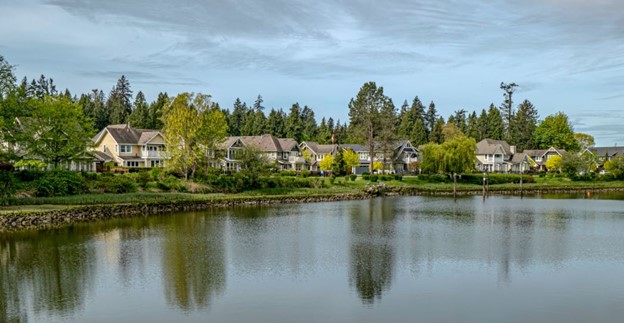Investing in infrastructure is “most cost-effective way” to protect people, businesses, services
By Kyler Emerson

Canada’s infrastructure isn’t prepared to withstand the long-term impacts of climate change, found the Under Water: The Costs of Climate Change for Canada’s Infrastructure report released by the Canadian Institute for Climate Choices.
The report finds that climate change increases the risk of damage to important infrastructure. As sea levels rise and rainfall levels change, “flood damage to homes and buildings could increase fivefold in the next few decades, and by a factor of ten by the end of the century, with costs as high as $13.6 billion annually,” according to the report. This is in addition to the predicted $5.4 billion annual costs for road and railway damages caused by increased temperature and rainfall.
Dylan Clark, a senior research associate at Climate Choices and one of the authors of the report, says their research provides a picture of how much climate change could cost Canadians and our economy.
“[It’s] going to cost Canadians billions of dollars unless governments take policy action starting today,” Clark says.
Proactive investment in infrastructure is the “most cost-effective way to protect the services people, businesses, and the economy depend on,” states the report. However, it notes that not all of the impacts and costs can be quantified, as the loss of services and reliability “will have far-reaching social and economic consequences.”
Metro Vancouver has a regional growth climate strategy called Climate 2050, which integrates climate change preparedness in land-use policies to guide future development in transportation and infrastructure.
“There’s two components of Climate 2050. One is emissions reduction and looking at low-carbon options. The other is climate adaptation to make sure our region is resilient to the impacts of climate change going forward,” says Dana Zheng, a program manager with Metro Vancouver Liquid Waste Services. She worked on the development of the infrastructure plansmade to support the region’s climate strategy.
“There’s a lot for us to understand and gather information on before developing these options. It’s, unfortunately, a lengthy process, but in my opinion necessary to know that we’re doing the right thing,” Zheng says.
Metro Vancouver is also participating with the Fraser Basin Council in collaboration between all levels of government to develop regional flood risk assessments as part of the Lower Mainland flood management strategy.
“Part of this initiative is agreeing on a set of flood mapping and identification of flood mapping within the region, so that we’re all using the same resources and updating these resources as information becomes available,” Zheng says.
This information could be used to inform developments in the region to prevent damage to at-risk areas in cities like Delta, which is currently in the process of increasing the height of dikes that protect areas at risk of flooding. Some parts of Richmond and Surrey are at or below sea level and are protected by systems of dikes, but there are homes and buildings built in those areas.
The report estimates that at least a half million buildings at risk of flooding in Canada are not identified by government-produced flood maps, and for the flood maps available they are on average 20 years out of date and don’t examine future flood risks due to climate change.
“If we want to protect lives and the economy, there’s not an option of just picking one thing,” Clark says.
“We cannot afford not to act. These costs are coming, and preparing today is the most fiscally prudent approach.”
This article was written as part of JRNL 4250, a senior class about politics and journalism. Climate change was one political issue reported on by the students, as part of the Climate+ Challenge.